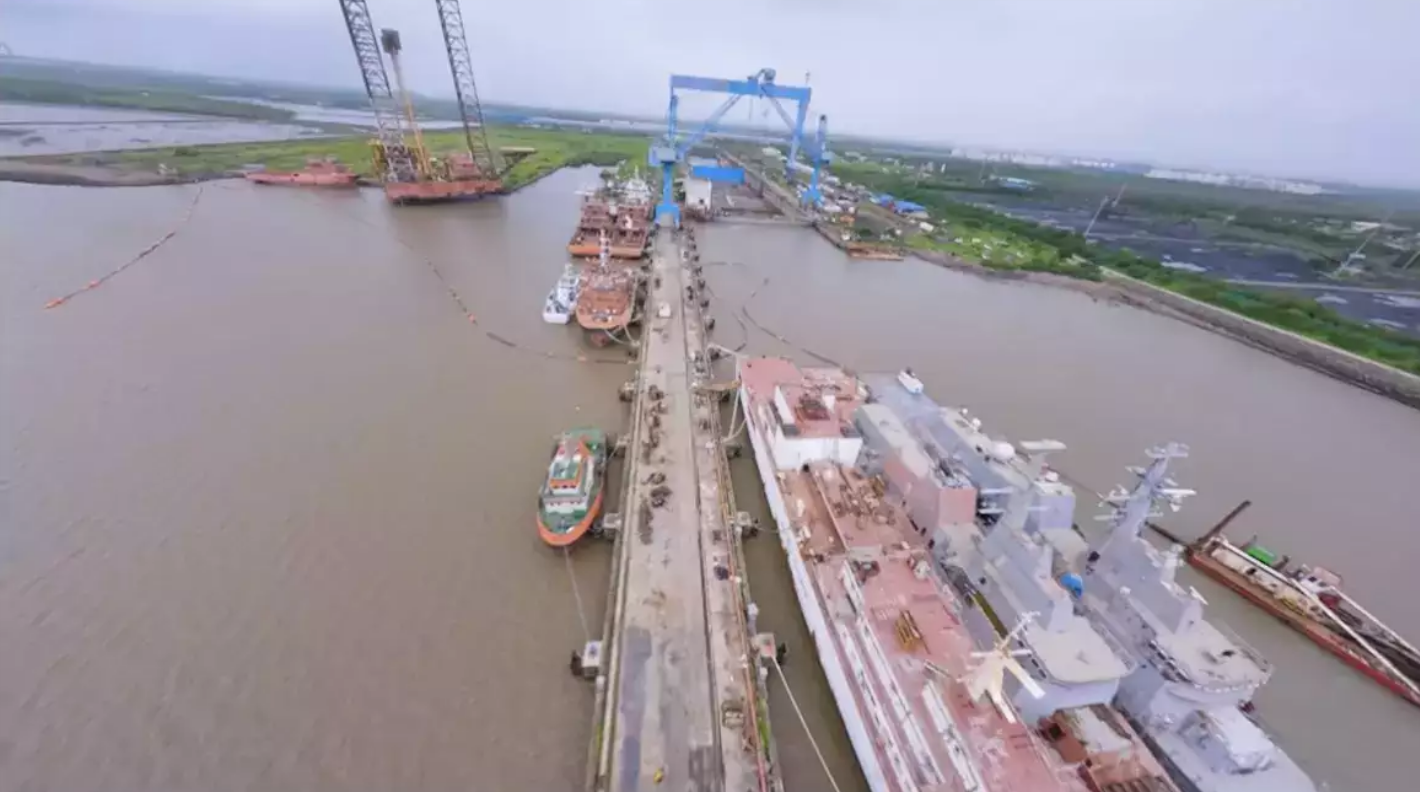Reliance Naval and Engineering Ltd (RNEL), a unit of Indian oil and gas company Swan Energy, and India’s state-owned Cochin Shipbuilding Limited (CSL) are in advanced talks with Russia to each build two non-nuclear icebreakers for the government-brokered Russia’s state-owned nuclear energy company ROSATOM to build two non-nuclear icebreakers to support its Northern Sea Route (NSR) development program, with an estimated total order value of over Rs 400 crore.

A top team from Swan Energy’s Gujarat-based Pipavav Shipyard, including its CEO Rear Admiral (retired) Vipin Kumar Saxena, visited Moscow in early December to discuss the construction of icebreakers for Russia, a government official with knowledge of the visit said. Describing the three-day visit as “very successful,” the official said, “Russia wants Pipavav Shipyard and Cochin Shipyard to finalize the order and start construction as soon as possible.”
Icebreakers are used to break up ice so that it melts more easily and becomes water that absorbs more sunlight. Icebreakers play a vital role in crisis and disaster response capabilities in icy waters.
Russia is using the Northern Sea Route as an alternative route for global shipping, offering shorter transit times between Northern Europe and East Asia. Russia’s plans to build four icebreakers in India have been given a further boost by the return of US President-elect Donald Trump to the White House.
You can see Trump openly supporting Russia and vice versa,” the official said. Russia is looking forward to Trump’s inauguration as US President in mid-January when everything will be on track. Russia is trying very hard to get Indian shipyards to build icebreakers for ROSATOM and has promised to order large ships later. Russia wants to work with us to build large bulk carriers, tankers and container ships, especially with the government’s big push on shipbuilding. Moreover, Indian Prime Minister Modi and Russian President Vladimir Putin are in lockstep.”
The two sides are expected to finalize a Memorandum of Understanding (MoU) detailing the timeline, cost, infrastructure and transfer of technology for the construction of the icebreakers within 2-3 months,” the official added. Since India does not have the special steel required to build the hull of the icebreaker, the steel will have to be sourced from China. Russia will source the special steel for manufacturing the hull from China and ship it to India.”
Pipavav Shipyard has the largest dry dock in India, measuring 662 meters long and 65 meters wide. Unlike other shipyards in China, South Korea and Japan, which have slots available (a key factor in the current shipbuilding market), other shipyards have slots scheduled until at least 2028.
Hazel Infra is a Special Purpose Vehicle (SPV), owned 74% by Swan Energy and 26% by Hazel Mercantile. The company acquired the insolvent Pipavav Shipyard under the Insolvency and Bankruptcy Code (IBC). Established in 1997, Pipavav Shipyard is known to be India’s largest private shipbuilding company and the first private shipyard in India to receive a military order.
In 2016, Indian conglomerate Reliance Group took control of the shipyard through a debt restructuring, but by 2019, Pipavav was renamed Reliance Naval and Engineering Ltd (RNaval) and fell back into financial crisis. Creditor banks then initiated insolvency proceedings at the shipyard to recover about $1.2 billion in debt, and the Indian Navy canceled a series of ship orders.In late 2020, the Pipavav shipyard began to be auctioned off, but the auction period was extended for a time due to the New Crown epidemic. In August this year, India’s Pipavav Shipyard resumed operations after years of bankruptcy.
Swan Energy did not respond to an email seeking comment on the icebreaker order, and Cochin Shipyard declined to comment.
Russia is set to partially fund the icebreaker order by supplying crude oil to Indian refineries due to restrictions on dollar transactions involving Russia.
According to the Russian government’s plan for the development of the Northern Sea Route, the country plans to transport at least 150 million tons of crude oil, liquefied natural gas, coal and other cargoes annually through the Northern Sea Route from 2030 onwards. The plan includes the construction of more than 50 icebreakers and ice-class ships, as well as ports, terminals and emergency vessels.
In addition, Russia and India are discussing the possibility of supplying the Indian port system with Russian energy resources (oil, coal and liquefied natural gas) from Russia’s northwestern ports via the Northern Sea Route, with transshipment at Russian ports in the Far East.


